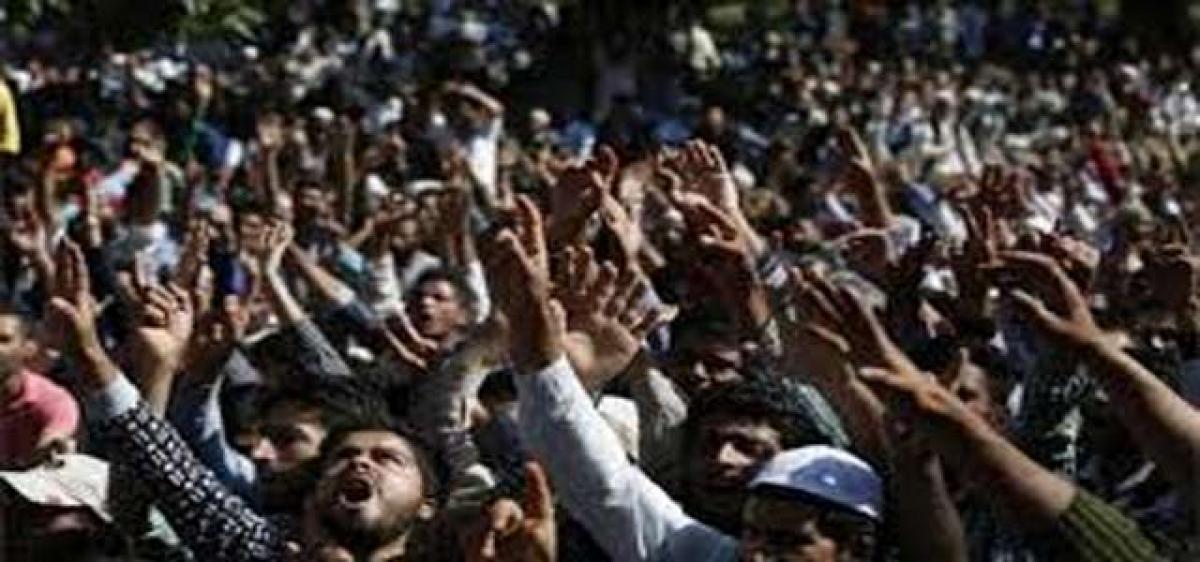Live
- Are strict laws needed to ensure MLAs attend Assembly sessions?
- Do you support caste census? which one will you prefer caste census or skill census?
- Maha people gave big victory to Mahayuti led by BJP: Kishan
- Don’t rush to cover up harvested grain
- Ensure participation of all farmers in conference: CM
- Public uprising against Cong govt imminent : Bandi Sanjay
- SP conducts surprise inspection of Srikalahasti PS
- Antimicrobial resistance awareness programmes held
- BJP celebrates victory in Maharashtra Assembly polls
- BJP gets shot in the arm ahead of Delhi polls
Just In

The Kerala State Planning Board appointed a committee to study the impact of demonetisation on the State’s economy, which was headed by noted economist C P Chandrasekhar.
The Kerala State Planning Board appointed a committee to study the impact of demonetisation on the State’s economy, which was headed by noted economist C P Chandrasekhar.
The interim report of the committee just released provides useful pointers for both Telangana and Andhra Pradesh governments to probe the concrete situation prevailing in the respective States.
The time has come for economics to prevail over politics and an incisive study should set aside the empty political rhetoric.
The unprecedented liquidity crunch induced by demonetisation has seriously curtailed effective demand. Transactions in many markets have been reduced or brought to a halt.
This resulted in the erosion of livelihood opportunities for casual and temporary workers who are paid in cash, thus further restricting the demand in the economy.
The curtailment of demand would result in contraction of growth, thereby decelerating the revenue generation for the government. The growth rates would certainly dampen.
Farmers who have just harvested their crop have not been able to sell all of it and buy seeds and other inputs for the next crop.
Thus, the agricultural operations are hit. The macro economic consequences of this monetary contraction need to be further studied.
The interim report estimated that 56 per cent of the economic activity of Kerala is immediately affected by demonetisation.
This may vary in Telangana and Andhra Pradesh, depending on the share of the cash-intensive sectors in the overall gross state domestic product (GSDP).
Like Kerala, Telangana has been experiencing decline in the agricultural sector. The cash crunch would further worsen the situation. The Kerala experience reveals that high-growth sectors of trade and hotels have been seriously hit.
The level of activity in cooperative banks and primary agricultural cooperative societies has been seriously undermined. The business of non-banking finance companies is affected quite significantly.
The Kerala experience suggests that payments to farmers involved in the dairy sector have been adversely affected.
Because of restricted access to cash, farmers have not been able to acquire adequate feed for their cattle.
The livestock economy and the dairy sector have assumed an important position even in the economy of TS and AP. A similar disruption is expected here, too.
The Kerala fisheries market witnessed the wholesale buyers being unable to carry out business in high volumes.
Expected price for the fish is not realised. Even the fishing activity is derailed. The experience may not be different in our States as well.
Migrant workers are more vulnerable. The handloom sector in Kerala has also been severely affected. Tourist arrivals have been falling. The cumulative impact of all this on Kerala economy is expected to upset the fiscal arithmetic.
Andhra Pradesh and Telangana are also unlikely to have a different impact, though the intensity and sectoral impact may vary depending on the concrete economic features.
The Kerala experiences provide useful insights for other State governments to analyse the impact of demonetisation and to evolve suitable measures to mitigate the suffering of the people and the economy.

© 2024 Hyderabad Media House Limited/The Hans India. All rights reserved. Powered by hocalwire.com







